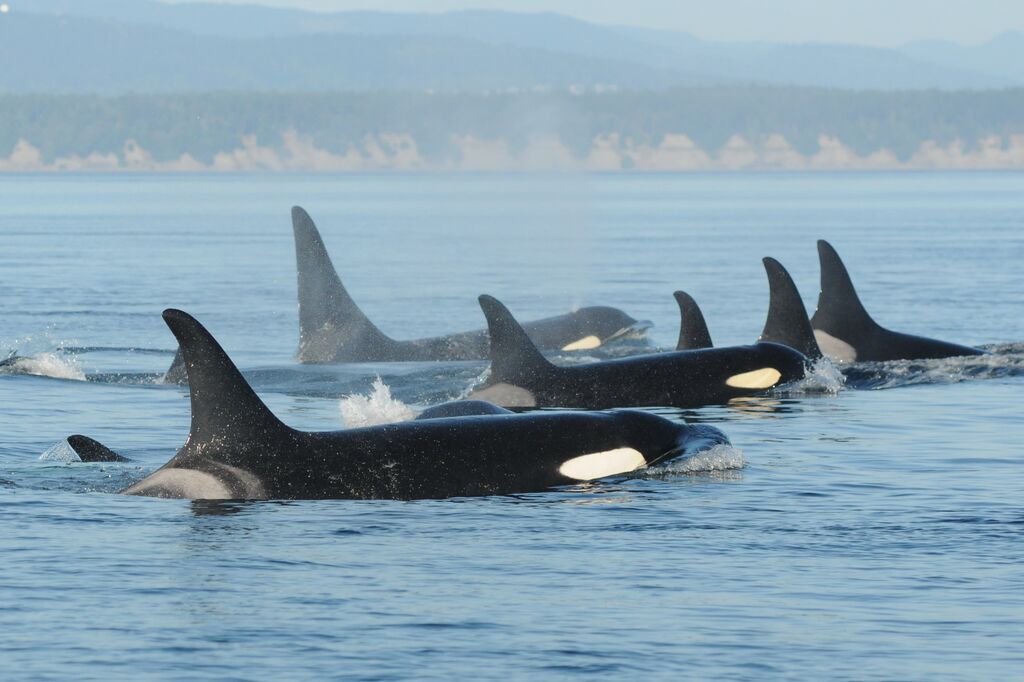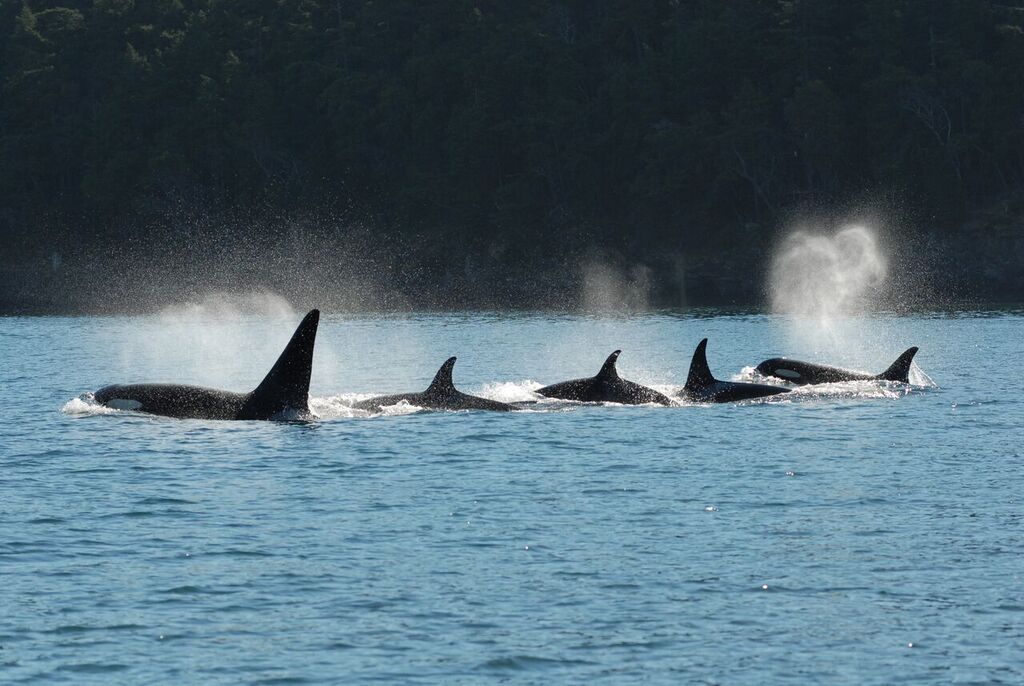Support our research into killer whales and help us to conserve this unique animal!
 The Southern Resident killer whales (SRKW) found off the coast of North Western US Pacific
coast live on a knife edge and are at risk of extinction. The population has been
listed as endangered since 2005 in the United States and on the “Species at
Risk” in Canada since 2003. Two critical questions are - what is causing
decreased reproduction and what is causing increased mortality?
The Southern Resident killer whales (SRKW) found off the coast of North Western US Pacific
coast live on a knife edge and are at risk of extinction. The population has been
listed as endangered since 2005 in the United States and on the “Species at
Risk” in Canada since 2003. Two critical questions are - what is causing
decreased reproduction and what is causing increased mortality?
Who are we?
 My name is Darren Croft, I'm a behavioural ecologist from Exeter University working together with Dan Franks from the University of York and we have had the privilege to be working together with Ken Balcomb
My name is Darren Croft, I'm a behavioural ecologist from Exeter University working together with Dan Franks from the University of York and we have had the privilege to be working together with Ken Balcomb  and the fantastic team at the Center for Whale Research who have made observations of killer whales for over 40 years. Together we have analysed this data and already made some important discoveries as published in Current Biology and publicised in Nature : Post-menopausal whales lead the hunt
and the fantastic team at the Center for Whale Research who have made observations of killer whales for over 40 years. Together we have analysed this data and already made some important discoveries as published in Current Biology and publicised in Nature : Post-menopausal whales lead the hunt
Why is your support so important ?
 Understanding social behaviour is critical
to answering the crucial questions about killer whale reproduction and
mortality. Just as humans are connected in a social network of family, friends
and acquaintances which can predict our lifespan, we have found that killer
whale social structure is also key for survival in this critically endangered
population. So far, however, we have only scratched the surface and our
understanding of the social behaviour of these animals is decades behind our
understanding of primate social behaviour.
Understanding social behaviour is critical
to answering the crucial questions about killer whale reproduction and
mortality. Just as humans are connected in a social network of family, friends
and acquaintances which can predict our lifespan, we have found that killer
whale social structure is also key for survival in this critically endangered
population. So far, however, we have only scratched the surface and our
understanding of the social behaviour of these animals is decades behind our
understanding of primate social behaviour. 
Tremendous progress has been made in our understanding of killer whale social behaviour by inferring social relationships from the fleeting glimpses of the whales when they surface to breathe. However, the behaviours that underpin these social relationships (e.g. mating, cooperation, aggression) happen under water and are rarely observed.
 The major research
priority for us is to collect new data that will allow us to record behavioural
interactions. We want to do this by using un-manned aerial vehicles (drones) which
will revolutionise our understanding of
killer whale behaviour by getting a birds eye view of who interacts with whom
and how. With this information we can refine our analysis of population
viability and future predictions for the health and survival of these amazing
animals. Please help us to fund this
vital new technology.
The major research
priority for us is to collect new data that will allow us to record behavioural
interactions. We want to do this by using un-manned aerial vehicles (drones) which
will revolutionise our understanding of
killer whale behaviour by getting a birds eye view of who interacts with whom
and how. With this information we can refine our analysis of population
viability and future predictions for the health and survival of these amazing
animals. Please help us to fund this
vital new technology.
How will we use the money?
We hope to purchase the following kit if we get the support we need:
- DJI Matrice 600 system. It is a hexacopter with (6) on-board batteries that give it a maximum flight time of 35 minutes (with 10% battery power reserve utilising the TB48S high capacity batteries).
- Zenmuse X5 camera - 16 megapixels camera with 7 frame/sec burst mode.
- The cost of the above is £6,300
- Total cost of the kit including a spare set of batteries is £7,500.
If we aren't able to raise the full amount we will reduce the spec or buy the kit as separate elements and if we are lucky enough to raise more we will use it to fund additional data collection expenses such as funding boat time.
Rewards
See the list of rewards for supporting us up on the right hand side
Images and video links
Here's something about the research so far
Here's the team at the Center for Whale Research :
Ken Balcomb, Deborah Giles, David Ellifrit, Erin Heydenreich, Astrid van Ginneken, Lisa Moorby, Melisa Pinnow 




Find us here:
www.facebook.com/CenterForWhaleResearch
Please help us succeed!
You don't need to give money to help us succeed!
Please share this project with anyone you think would support us – on Twitter, Facebook, LinkedIn, by email, telephone, in a chat over the fence or on your blog.
And we know we said you don't need to give money to help us, but we'd love it if you did! Please sponsor us and help make this happen.


